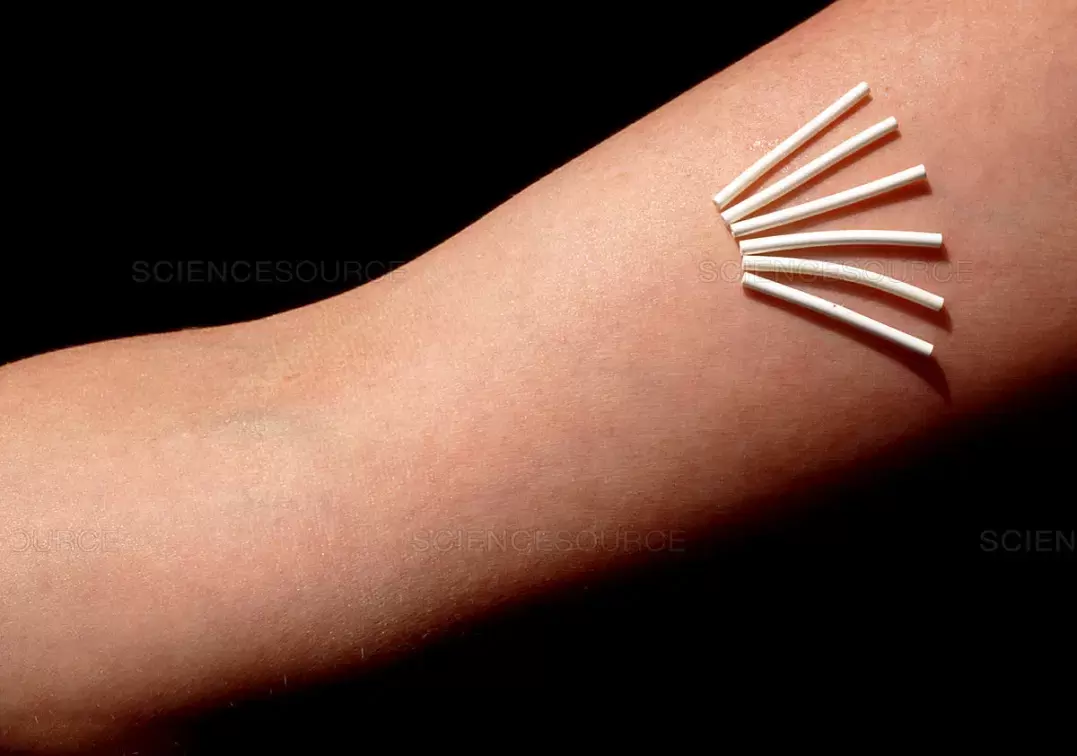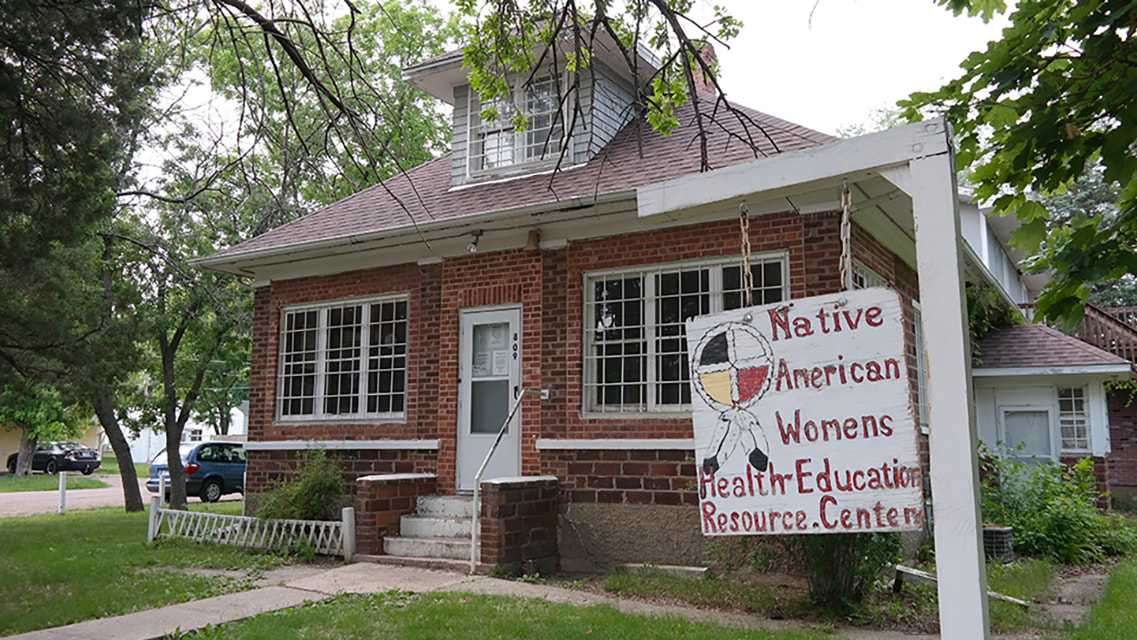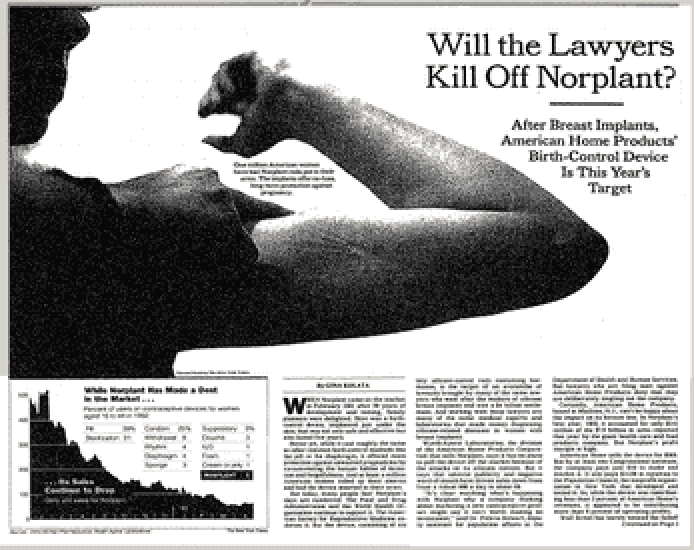The Politics of Norplant:
Feminism, Civil Rights,
and Social Policies
in the 1990s
|
My research investigates the contested history of Norplant, the first subdermal contraceptive implant technology. Norplant devices consisted of six silicone rubber rods, each about the size of a matchstick. When surgically inserted under the skin of a woman’s upper arm, the device slowly released hormones to prevent pregnancies for up to five years. My research asks how political leaders, feminists, and class action lawyers used their ideologies to define Norplant from its development in the 1960s to its demise in 2002.
In 1990, U.S. feminists and doctors celebrated Norplant’s approval by the Food and Drug Administration, believing that the new contraceptive would afford women greater reproductive control. But feminists in Bangladesh, Brazil, and Egypt had claimed that the drug’s testing trials in their countries were unethical. They informed their U.S. counterparts of Norplant’s unsafe side effects and warned them that the contraceptive device would be used as a form of population control. Within months, their predictions began to play out. U.S. judges, lawmakers, and community leaders pressured poor and minority women to use Norplant and some patients claimed that they experienced terrible side effects from the drug. U.S. women’s health and reproductive justice activists mobilized on patients’ behalf and profit-seeking class action lawyers took notice, filing two hundred lawsuits against Norplant’s manufacturer, representing fifty thousand plaintiffs. The lawsuits convinced the public that the contraceptive device was dangerous causing sales to diminish and Norplant’s distributor to remove the drug from the American market. However, the suits did not win a significant financial settlement for the women or draw attention to the population control efforts directed at poor and minority women. I have presented papers at several national conferences and have received support from the Schlesinger Library at the Radcliffe Institute for Advanced Study at Harvard University, the Sophia Smith Collection of Women’s History at Smith College, and the Rockefeller Archive Center. |



